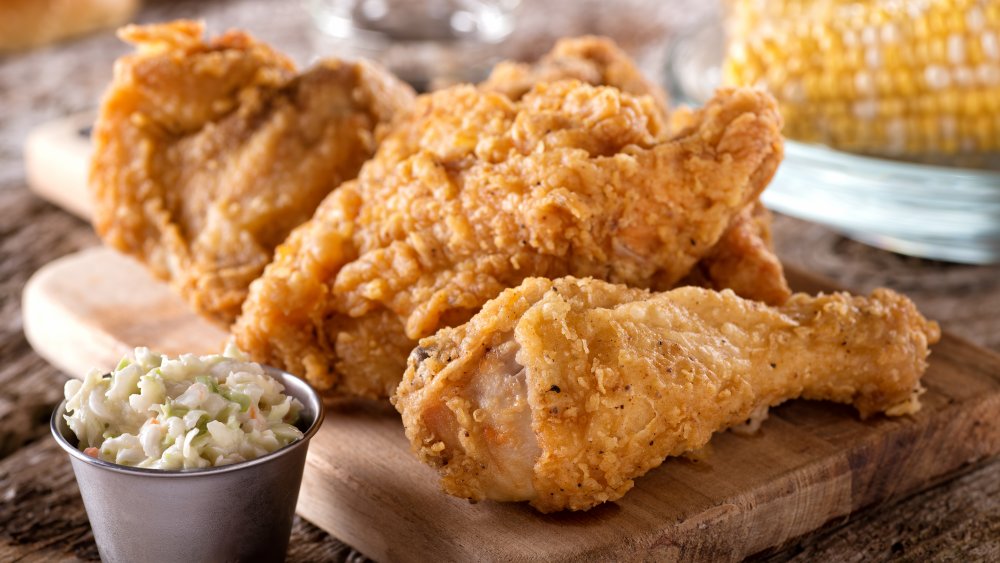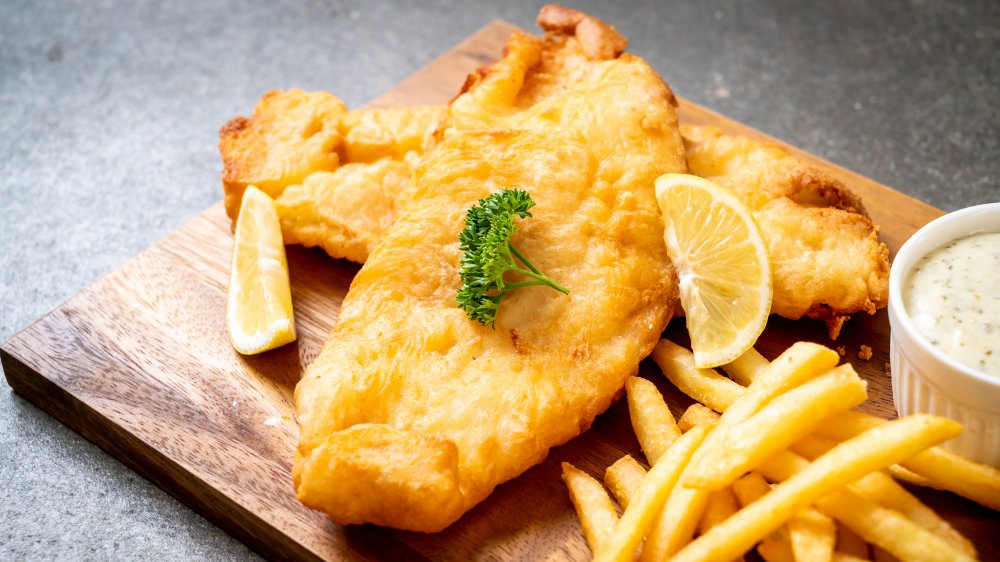How Many Times You Can Really Reuse Frying Oil Before Tossing It?
Once you get over the fear of starting an uncontrollable grease fire in your own home, frying your own food can be quite a fun experience for a home cook. Making your own fried chicken or french fries at home is a fun challenge to see if your version stacks up to that of your favorite restaurant. However, since frying requires so much oil (The Kitchn notes that making a batch of fried chicken can require as much as 2 quarts), it makes sense to try and use it more than once.
But how many times can you use cooking oil before it goes bad? And will using re-used oil change the taste of whatever you're frying? The most important thing when it comes to reusing oil is to make sure you're straining it (via Canadian Living). The leftover bits that naturally fall off whatever you're frying is what causes the oil to degrade and go bad. If you can remove these from your oil, it will stay usable for longer. Just make sure to wait for the oil to cool down before you strain it, because straining while it's still hot can be extremely dangerous.
How long is frying oil good?
The amount of time that you can reuse oil without any adverse effects depends on what you are frying. The rule of thumb is that you should replace oil used to fry animal products more often than replacing the oil to fry plant-based products. If you properly strain your oil, you should be able to use it about four times if you're frying something like fish or chicken.
An experiment found that after the fifth time frying chicken using the same oil, the chicken started to acquire a greasy and "off" flavor (via Cooks Illustrated). On the other hand, using the same oil to fry potato chips, the experiment found no difference between the flavor of the first batch and any of the successive batches. The experiment went through eight batches without finding any difference. It's not to say that you can use it forever if you're frying vegetable products, but you'll be able to use it for quite a long while without noticing any differences.

